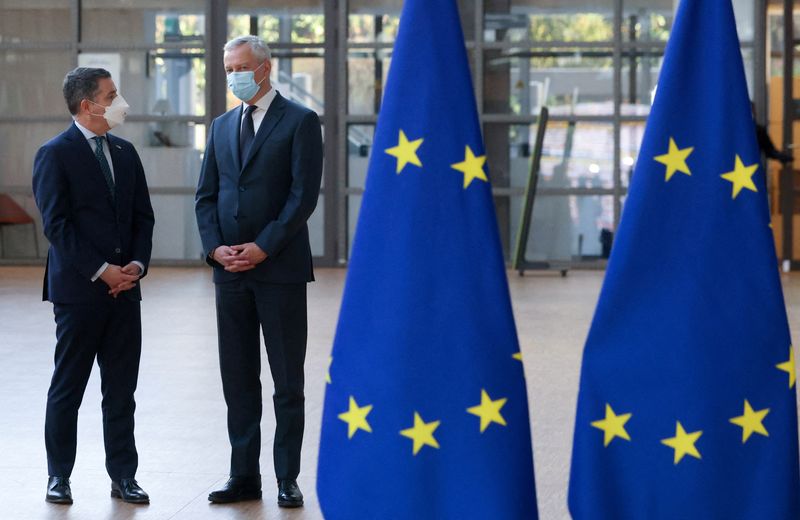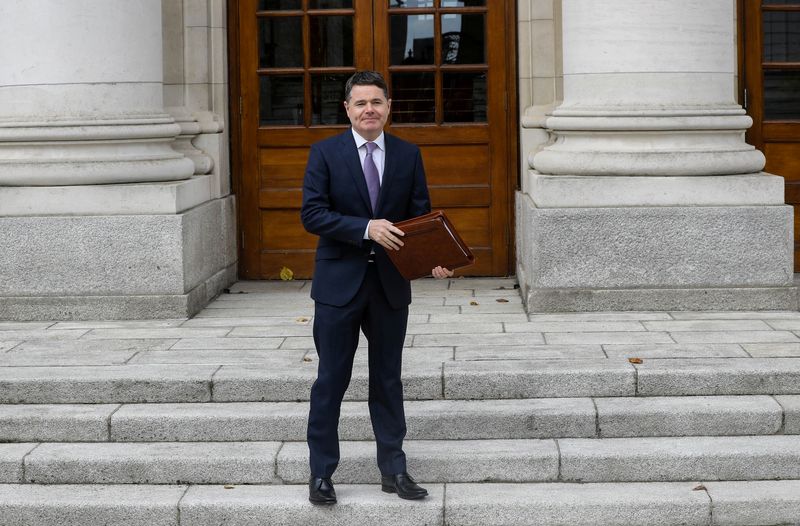BRUSSELS (Reuters) -The surge in inflation is hurting growth in the euro one and finance ministers are naturally concerned, the chairman of the ministers Paschal Donohoe told the European Parliament's economic committee on Wednesday.
Euro zone inflation rose to a new record high of 5.1% year-on-year in December, defying expectations for a big drop and adding to already big doubts that price pressures are as benign and temporary as the European Central Bank still expects.
"The inflation upswing is affecting growth and the purchasing power of citizens' incomes. This is something finance ministers are naturally concerned about," Donohoe said.
"The narrative on inflation has also changed somewhat, as the factors that have been driving prices up, are taking longer to dissipate than was expected. We are talking primarily about energy prices, but also strong demand, supply bottlenecks and technical factors," he said.
Donohoe said he was confident the ECB, which wants to keep inflation at 2% over the medium term, would do all it can to curb price growth, but that it could not solve problems with supply, which were behind much of the price rises.
"There are, so far, no signs of significant second round effects stemming from wage increases, and inflation is expected to start decreasing this year and subsequently drop below the ECB's 2% target in 2023," he said.

He said governments were also taking or exploring measures against the negative impact of high energy prices, but rising tensions with Russia, which supplies 40% of EU gas were also a factor in the outlook for energy prices and headline inflation.
"The geopolitical tensions of course also have to be taken into account in this context," Donohoe said.
